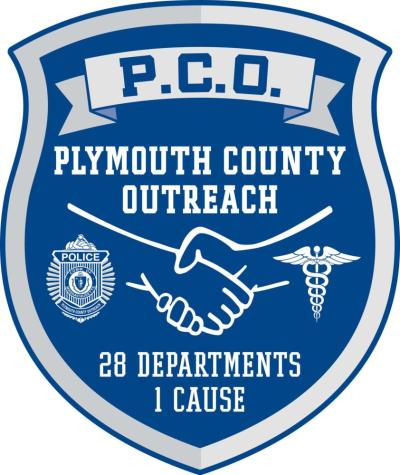Plymouth County Outreach issues alert after 13 overdoses in 19 days
Thirteen fatal overdoses have been reported in Plymouth County in the first 19 days of December, prompting an alert from Plymouth County Outreach.
The 13 fatal overdoses are more than any other month this year.
Plymouth County Outreach and its partners want the public, especially individuals at risk for overdose and their families and friends, to be aware of the increased risk of an overdose and what action they can take. The holidays are a difficult time for many, and Plymouth County Outreach wants community members to know that they are not alone.
Anyone using any substance purchased off the street is at risk of an overdose. It is suspected that Fentanyl is being mixed with other non-opioid substances such as cocaine and street pills marked as Xanax.
There has also been growing concern of the presence of an animal tranquilizer, xylazine, being found in the illicit drug supply. Although it’s being used as an additive to opioids, xylazine is not an opioid and will not respond to Narcan.
The public is encouraged to recognize the signs of an overdose: Breathing is very slow and shallow, erratic, or has stopped; face is very pale; cool, clammy skin; choking sounds or a gurgling noise (death rattle); pulse (heartbeat) is slow, erratic or has stopped; blue/gray skin tinge, usually lips and fingers show first, sometimes in tips of ears; loss of consciousness-passing out; body becomes very limp
Naloxone, known as Narcan, is a medication used to reverse an opioid overdose. Narcan saved lives 94% of the time when administered in Plymouth County last year.
Narcan is readily available throughout the county free of charge, no questions asked, including at these locations:
By calling Plymouth County Outreach, 774-434-5072, or reaching out through the website's connect page: plymouthcountyoutreach.org/connect; Bamsi Brockton Cope Center, 74 Pleasant St., Brockton, 508-583-3405; Bamsi Plymouth Cope Center, 385 Court St., Plymouth, basement suite, 508-942-0679; PCO Hope, 385 Court St., Plymouth, 774-283-4763; Manet Community Health Center, 180 George Washington Boulevard, Hull, 781-925-4550.
Local pharmacies have an open/standing prescription for everyone. This means you can go to your pharmacy to ask for Narcan. The cost will be whatever your insurance co-pay is.
Resources are available throughout the county and region. Learn more at plymouthcountyoutreach.org/partners. Additionally, contact Massachusetts Substance Use Helpline at 800-327-5050 or helplinema.org
If you or a loved one is at-risk of an overdose and looking to access treatment, reach out to the local Plymouth County Police Department and ask to speak with a Plymouth County Outreach Officer, contact Plymouth County Outreach through its website at plymouthcountyoutreach.org/connect or call 774-434-5072.
Massachusetts passed the Good Samaritan Law in 2007, which encourages someone who witnesses an overdose to seek help by protecting the caller and the person who overdosed from arrest and prosecution for drug possession. The goal of the law is to protect people so they are not afraid to involve emergency services as soon as possible.
While Plymouth County Outreach and its police chiefs strongly encourage people to seek treatment, addiction is a disease and it is important to know ways to reduce the chance of death:
Don’t use alone. If you must use alone call the Never Use Alone hotline, available 24/7 at 1-800-972-0590
Use with someone else present and don’t use at the same time. This way, if one of you overdoses, the other can call 911 and administer Narcan.
Test your substances with fentanyl test strips.
Have access to Narcan.
Make sure your social networks have Narcan.
Mixing substances can put you at increased risk of overdose.
Test a small amount first.
Use new supplies every time.
Know that using via inhalation or smoking doesn’t protect you from overdose.
Know that periods of abstinence followed by use are quite dangerous in relation to fatal overdoses. Common examples are hospitalizations, incarceration, or periods of abstinence-based treatment.
Heroin use equals fentanyl use in Massachusetts.












